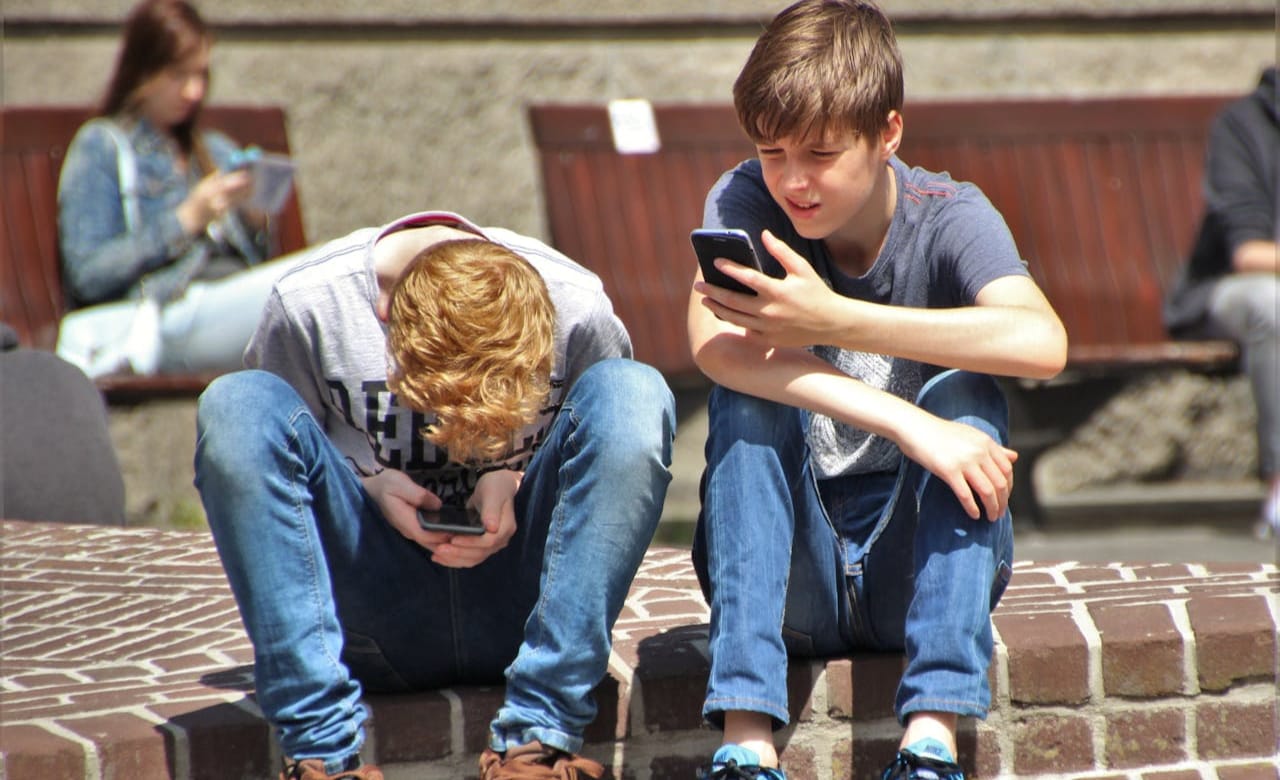The Effects of Social Media Addiction on Relationships and Well-being
Social media has become a large part of life for many people. Platforms like Instagram, TikTok, X, YouTube, and Facebook have the power to connect and entertain. However, excessive engagement can transform into addiction, harming your mental health and relationships. If you find yourself compulsively checking your phone, endlessly scrolling through feeds, or feeling anxious when you're away from your notifications, these are warning signs of a potential issue. In this article, we’ll explore the effects of social media addiction on your mental health, relationships, and emotional well-being. We’ll cover its impact on everyone from children to adults, why it draws us in, and how you can restore balance in your life.
What is Social Media Addiction?
Social media addiction is characterized by compulsive, repetitive engagement with online platforms despite negative consequences on mental health, relationships, or daily functioning. This behavioral addiction mirrors substance addictions, as it activates similar dopamine-reward pathways in the brain.
You feel compelled to constantly engage with platforms, and it’s difficult to reduce your usage, even when you know it’s harming other parts of your life—like relationships, work, or emotional health.
If you’re experiencing this, you are not alone. These platforms are deliberately designed to keep people engaged. Features like comments, likes, instant notifications, and infinite scrolling offer constant opportunities for dopamine release. These features then reinforce the habit of checking and interacting with the app throughout the day.
Over time, this leads to compulsive behaviors such as an increased need for social media use to gain the same sense of satisfaction. Behaviors may include constantly checking your phone, feeling anxious or down when you’re not online, or avoiding face-to-face interactions in favor of scrolling through feeds. The first step in tackling this is recognizing how deeply social media has woven itself into your daily habits.
The Effects of Social Media Addiction Across the Lifespan

Impacts on Children
Children are increasingly exposed to social media from an early age. While platforms such as YouTube or TikTok can provide entertainment and even educational content, excessive use can have negative consequences on their developmental growth. Social media can disrupt their ability to engage in creative play and build face-to-face communication skills. For example, young children who spend long periods on devices may struggle with understanding social cues or managing interpersonal conflicts because they are not learning these essential skills in real-world settings.
Additionally, early exposure to social media can lead to the development of attention-related issues. Studies show that children who spend significant time online can have difficulty focusing on tasks, both in academic and social contexts, because they become accustomed to the rapid, fragmented nature of digital content. This can lead to issues at school or even difficulties managing their emotions.
When children become addicted to social media, they may spend excessive time online without fully understanding the dangers. This can lead to unsafe interactions, like engaging with strangers or falling for online scams, because they're more focused on staying connected than on personal safety. It’s important to teach them about internet and social media safety while also guiding them toward a healthy balance between screen time and real-life interactions.
Effects on Teens
Teenagers are perhaps the most vulnerable group when it comes to social media addiction. Adolescence is a time when peer relationships and social validation become increasingly important, and social media provides a platform where teens can receive near-instant feedback on their appearance, thoughts, and actions. A Pew Research Center study among U.S. teens found that 17% of teens were constantly on TikTok, 16% were constantly using YouTube, and 14% were constantly on Snapchat. This report also found that over half of teens used TikTok or Snapchat daily, and 71% of teens use YouTube daily.
Social comparison can leave them feeling insecure, anxious, or depressed if they feel they don’t measure up to the seemingly perfect lives they see online. Constant exposure to idealized images of their peers or influencers can lead to feelings of inadequacy and poor body image, particularly among girls. Research has shown a correlation between high social media use and an increased risk of depression and anxiety among teenagers.
This can also affect their real-life relationships. Teens may withdraw from family or friends to spend more time online, leading to feelings of loneliness or even conflict within their homes. If they experience cyberbullying, the emotional toll can be significant, amplifying feelings of isolation and anxiety.
Teens addicted to social media may also overlook important safety measures, such as protecting their privacy, in their rush to constantly post and engage online. This can increase their vulnerability to cyberbullying, online predators, and exposure to inappropriate content, as their need for validation and connection overrides caution.

Effects on Adults
While social media addiction is often associated with younger age groups, adults are not immune to its effects. Many adults use social media to maintain professional and social connections, but excessive use can lead to emotional and relational challenges for them as well. Addictive behaviors can strain their romantic relationships and create feelings of neglect or distrust between partners.
The curated content on platforms often leads to social comparison, where individuals compare their lives to those of others, fostering dissatisfaction with their own circumstances. This can result in emotional distress, low self-esteem, and the exacerbation of existing mental health conditions such as anxiety or depression. It can also lead adults to neglect their responsibilities at work or home, further contributing to stress and relationship issues.
Why Social Media is So Heavily Used
One of the main reasons people turn to social media is to build or maintain a sense of community. For many, particularly those who feel isolated in their offline lives, social media provides a way to connect with others who share similar interests, experiences, or backgrounds. Communities that exist on platforms like Facebook or Reddit can offer emotional support, validation, and a sense of belonging.
Another key reason for the heavy use of social media is the need for constant stimulation. Social media platforms are designed to keep users watching through a continuous feed of new content, notifications, and interactions, which offer small but frequent rewards. For some, this constant access to entertainment and connection helps them cope with boredom, stress, or feelings of loneliness.
Many people also use social media to manage their professional lives. For individuals working in industries where networking or personal branding is critical, social media is a valuable tool. However, the pressure to maintain an active online presence can also contribute to compulsive behavior.
Social Media’s Impact on Emotional Regulation
Another big way social media addiction affects you is by messing with your ability to regulate your emotions. When you constantly rely on social media for that quick momentary dopamine, it can make it harder for you to process feelings like disappointment, frustration, or sadness in healthy ways. Instead of working through these emotions, you might turn to scrolling or posting to distract yourself, creating a cycle where you never fully process how you feel.
Treatment Options for Social Media Addiction
If you’re looking to regain control of your social media habits, there are several therapeutic approaches that can help.
- Mindfulness-Based Therapy: Mindfulness can help you become more aware of your social media habits. By teaching you to focus on the present moment, mindfulness can reduce the urge to constantly check your phone and help you reconnect with the world around you.
- Cognitive Behavioral Therapy (CBT): CBT is an effective treatment for internet addiction. It helps you identify and change the thought patterns and behaviors that drive compulsive social media use and promotes healthier coping strategies.
- Interpersonal Therapy (IPT): This therapy focuses on improving your interpersonal skills and addressing any conflicts in your relationships that may be driving your need for online interaction.
- Acceptance and Commitment Therapy (ACT): ACT teaches you to accept uncomfortable thoughts and feelings (like the urge to check social media) without letting them control your actions. It can help you align your behaviors with your values, such as spending more quality time with loved ones rather than scrolling through your feed.
- Group Therapy: Sometimes, the community you’re looking for on social media can be found in group therapy. These groups provide a safe space to share your struggles with others who are facing similar challenges. This can be especially helpful if you feel alone in dealing with social media addiction.
- Family Therapy: If social media has caused strain within your family, family therapy can help improve communication and set healthy boundaries around social media use. This can be particularly beneficial if you have children or teens who are also struggling with overuse.

Steps You Can Take Today
If you’re ready to start making changes, here are a few steps you can try today:
- Set boundaries: Create designated times or places where social media is off-limits. (E.g. the first hour after you wake up, an hour before bedtime, or at the dinner table)
- Track your usage: Use apps that monitor your screen time to help you become more aware of how much time you’re spending online. Certain apps will track your time spent on other apps, and then send you an alert to take a break.
- Re-engage with life offline: Pick up hobbies, reconnect with old friends, or take a walk without your phone. The more time you spend offline and investing in connections with yourself or loved ones, the less reliant you’ll feel on social media for entertainment or connection.
- Be kind to yourself: Social media addiction can feel overwhelming and you may need outside support and treatment. Practice being gentle with yourself. Allow yourself to make mistakes, and celebrate the small changes and progress you make.
Quiz: How Balanced Is Your Social Media Use?
Take this quick quiz to see if your social media habits are in check or if you may need to make some adjustments. This is to help prompt self-reflection and does not indicate any type of diagnosis.
How often do you check your social media accounts?
- A) A few times a day
- B) Every hour or so
- C) Constantly—I can’t go long without checking
How do you feel when you can’t access social media (e.g., during a meeting or in a no-service zone)?
- A) Fine—it doesn’t bother me
- B) A little uneasy, but I manage
- C) Anxious, irritable, or restless
When spending time with family or friends, do you find yourself reaching for your phone to check social media?
- A) Rarely, if ever
- B) Sometimes, but I try not to
- C) Often—it’s hard to resist
Do you use social media to avoid or distract yourself from negative feelings like boredom or stress?
- A) No, I deal with my emotions directly
- B) Occasionally, but it’s not a habit
- C) Yes, I often turn to social media for a distraction
How much time do you spend on social media daily?
- A) Less than 1 hour
- B) 1-3 hours
- C) More than 3 hours
Do you compare yourself to others on social media, which affects your mood or self-esteem?
- A) Not at all—I know social media isn’t real-life
- B) Sometimes, but I remind myself to stay grounded
- C) Often—it’s hard not to feel like I’m missing out
Your Results:
- Mostly A’s: Your social media use seems balanced! You’re mindful of how much time you spend online and don’t let it interfere with your life.
- Mostly B’s: While social media may not dominate your life, there are moments when it might impact your mood or focus. Small adjustments can help improve your balance.
- Mostly C’s: Consider making changes and/or seeking support. Small steps like monitoring your usage and creating screen-free spaces can help, but therapy might offer additional tools to break the cycle of addiction.
The effects of social media addiction can have a profound impact on your relationships and emotional well-being, but it doesn’t have to control your life. By understanding how social media affects you and taking steps to regain balance, you can strengthen your face-to-face connections and improve your mental health.
Therapy for Social Media Addiction | Dr. David Zacharias
If social media is taking a toll on your well-being, reach out to Existential Psychiatry for help. For over 20 years, Dr. David Zacharias has helped individuals face challenges and take back control of their time, relationships, and mental health. You don’t have to face social media addiction alone. Contact our office for a free consultation today.
Written by Existential Psychiatry Staff
Sources
- Anderson, Monica, et al. “Teens, Social Media and Technology 2023: YouTube, TikTok, Snapchat and Instagram Remain the Most Widely Used Online Platforms among U.S. Teens.” Pew Research Center, December 11, 2023. Accessed October 10, 2024.
- Alavi, S.S., et al. “The effects of cognitive-behavioral group therapy for reducing symptoms of internet addiction disorder and promoting quality of life and mental health.” Trends Psychiatry Psychotherapy, February 2021. Accessed October 10, 2024.